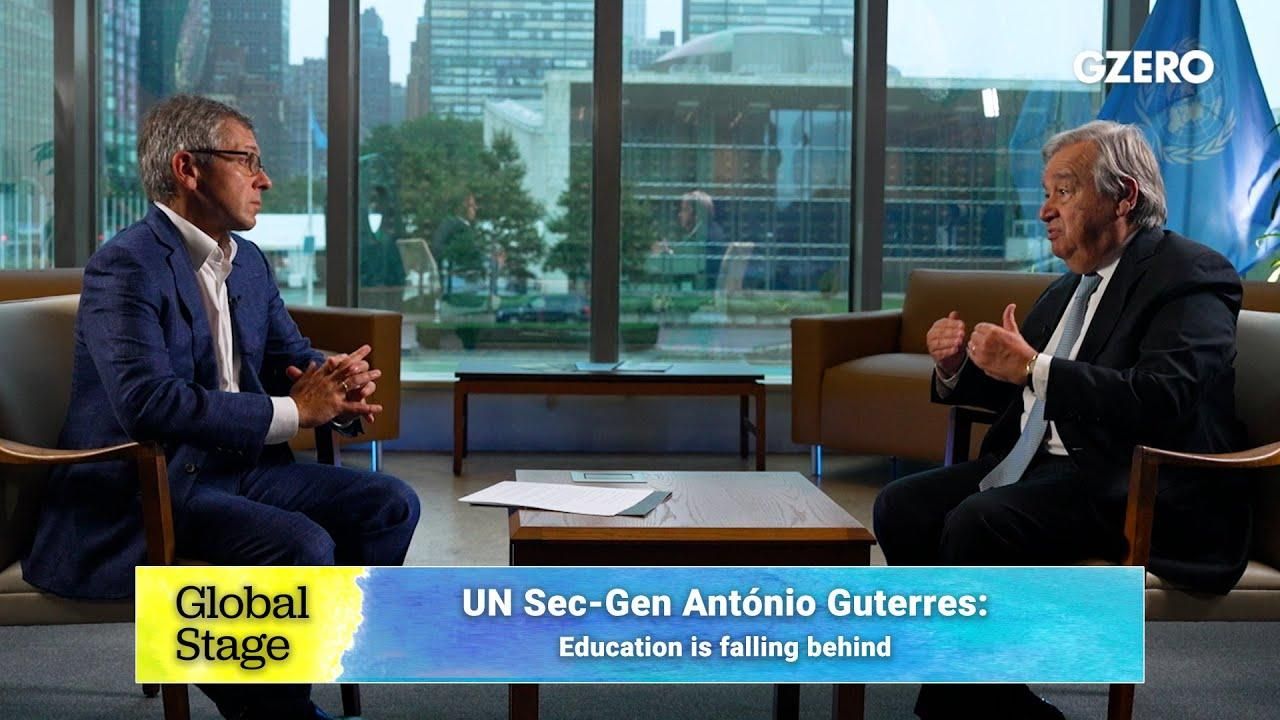Crisis Recovery
Education’s digital revolution: why UN Secretary-General António Guterres says it's needed

Post-pandemic Education Systems “Not There Yet,” Says UN Chief António Guterres | GZERO Media

All around the world, tens of millions of kids stopped going to school. Many of them only recently returned, and some never will.
Can we still turn this around?
Yes, but we need to rethink education, UN Secretary-General António Guterres says in a Global Stage interview with Ian Bremmer.
Guterres says we need to focus less on learning things, and more on how to learn. And this means training teachers to do more than asking students to memorize stuff.
More than two years after the pandemic put many children on Zoom, the UN chief says we must invest big in digital access — but even more importantly, so education systems can prepare kids "for a world that we don't know how it'll be."
Education, he adds, should be permanent so future generations will be able to adapt quickly to needs that'll surely change in the future.
People in support of former South Korean President Yoon Suk Yeol rally near Seoul Central District Court in Seoul on Feb. 19, 2026. The court sentenced him to life imprisonment the same day for leading an insurrection with his short-lived declaration of martial law in December 2024.
65: The age of former South Korean President Yoon Suk Yeol, who was sentenced to life in prison on Thursday after being found guilty of plotting an insurrection when he declared martial law in 2024.
In an era when geopolitics can feel overwhelming and remote, sometimes the best messengers are made of felt and foam.
The Hungarian election is off to the races, and nationalist Prime Minister Viktor Orbán is facing his most serious challenger in 16 years.
Does skepticism rule the day in politics? Public opinion data collected as part of the Munich Security Conference’s annual report found that large shares of respondents in G7 and several BRICS countries believed their governments’ policies would leave future generations worse off.